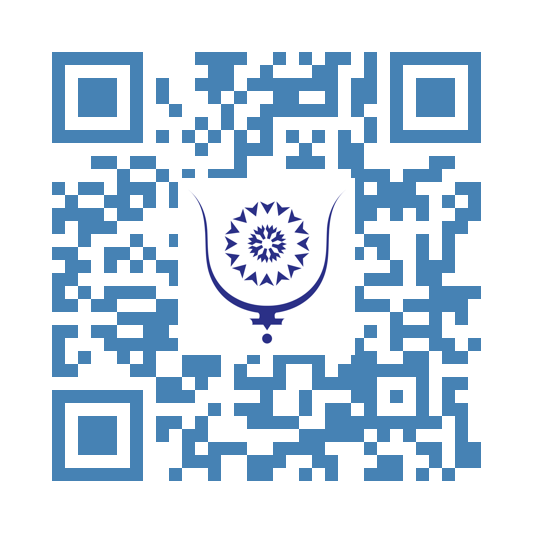But what is Gamal Abdel Nacer still doing in Conakry... 2897
What was my surprise when I was told that for my stay of only 3 nights in Conakry, I was going to stay at the « Hôtel de L'Université » which is in fact called Gamal Abdel Nacer University.
We must return to both the recent and distant history of Guinea Conakry to understand what Gamal Abdel Nacer is doing, or rather was doing, in this region of Africa.
The University is now some 60 years old. It has no less than 35,000 students and some 620 teachers. The students represent nearly twenty countries.
It is a university that aims to be innovative and competitive in the service of socio-economic development and environmental balance in Guinea, in the region and in the world.
Built with the support of the Soviet Union in 1962, it was known until 1984 as the Polytechnic Institute of Conakry. The University was then named in honor of Egyptian President Gamal Abdel Nasser. It served for a long time to provide the country with its elites.
Here Gamal is honored, elsewhere he was named Paper Tiger or even Tiger of Falouga, so much so that he puffed out his chest and suffered a series of defeats and disasters that his country continues to pay till today. An excess of "philosophical" vision undoubtedly misguided, meaningless slogans, based on an ideology without anchor, neither social nor even less cultural or historical, if not just a dream.
The Officer who called himself free had, with a group of friends, overthrown the very young egyptian Monarchy as a Kingdom. Previously, Egypt had Sultans. Fouad II overthrown by Gamal and his barracks friends, acceded to the throne in July 1952, aged only 7 months and 10 days, after the abdication of his father Farouk.
Farouk thought that by abdicating, leaving the throne to his baby with a regent who seemed to be accepted, he would calm the ardor of the officers and thus save his young monarchy. It didn't work. Farouk ended up leaving the country with honors, thus avoiding a bloodbath and confrontation between the military and pro-monarchist forces. The free officers will then name Mohammed Naguib president of the Arab Republic of Egypt in June 1953.
An Arab Republic in Africa, heir to the greatest civilization that the African continent and the world had given birth to.
Gamal was appointed prime minister in April 1954 but not for long...A few months later, on November 14, 1954, poor Naguib was kindly thanked and Gamal succeeded him quite naturally. Naguib born in Sudan will then go and write books...At the time it should be remembered, Sudan was part of Egypt but under shared sovereignty with the United Kingdom. Sudan will be declared an independent state in January 1956.
The free officers of Egypt in fact, carried a project of national independence, believing that Egypt was not in fact free and that the English still had an ascendancy over the monarchy. There was also there, and above all an air of revenge of the common people, who were the young army officers, on a Cairo bourgeoisie or even nobility, speaking mostly in French, moreover, of Turkish or very close.
The officers naively promised and no doubt dreamed of rapid economic development for the benefit of all...A somewhat special vision of communism and a socialism which was sought for a long time without ever succeeding, based on the doctrine of the Baathist Michel Aflak, a Syrian which skillfully combines socialism and pan-Arabism.
Michel Aflak is a fan of secularism and freedom from Western interests. The Baath subtly opposed socialism to Marxism, a way of satisfying the deeply religious populations, predominantly Muslim and not only, and for whom Marxism was synonymous with atheism. We are here in the Middle East, the cradle and heart of all monotheistic religions...
The Baath found in Gamal the ideal tribune. His inflammatory speeches met with an immense echo in Egypt and the Arab world: the army then appeared as the savior of an enlarged nation. The Arab Nation…
Nacer's speeches mobilized and inflamed crowds at home and beyond. Its Cairo Radio, then received on short wave throughout the so-called Arab world, would play a capital role in propaganda that would restore pride to populations who had not yet emerged from the yoke of colonization in the region.
Mohamed Abdelwahab will add a nice layer with the song Douae Echark (Call of the Orient) to the words of the great poet Mahmoud Hassan Ismail. It is undoubtedly one of the most beautiful pieces of music by the Egyptian virtuoso. Oum Kaltoum will do his part in 1964 with Ala Bab Masr (At the Gates of Egypt); words by Kamal Echanaoui and a composition once again by Mohamed Abdelwahab. She will also sing among others Ya Gamal ya Mital Alwatania (Gamal Example of nationalism or patriotism...). But the one who sang the most on the occasion of the July 23 celebrations was the young singer of that time, Abdel Halim Hafez, notably with his famous song Ihna Chaab (We the people).
In fact, we are here faced with an extremely well-oiled system serving a cause that wanted to be pan-Arabist in the service of a military regime that wanted to be exportable to all countries with the Arabic language as the common denominator.
The revolution was intended to be Egyptian but was to extend to the entire Arab world. It will succeed in overthrowing regimes almost everywhere, in Iraq, Libya, Syria... it will settle in Algeria and fail to make Hassan II of Morocco bend for example... The war of sands (Guerre des sables) was imposed to him but his solidity and his political sense will surprise them...





